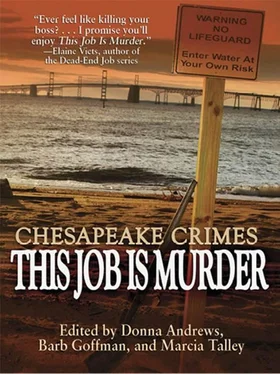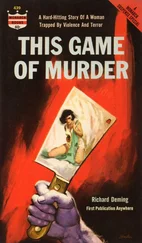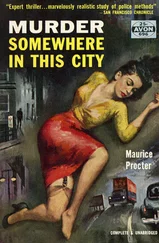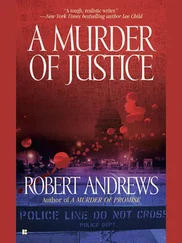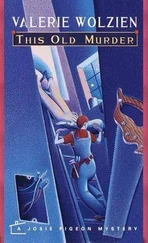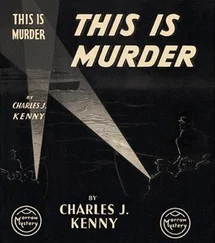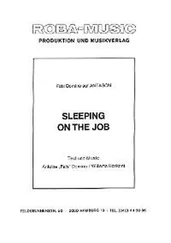My anxiety began to blend with a different kind of excitement. I don’t meet many men with eyes like his. “I’m a freelance writer, mostly articles on the Old West, that kind of thing.” A strand of hair wandered into my mouth, and I pushed it aside. “So I interview people.” I stabbed a glance at Short. “I’m careful to get my facts straight.”
“Mr. Renswick was found dead earlier today,” Short said. “His wallet was gone, but your business card was in his pocket.”
No way I could stay uninvolved now. “Dead? And he had my business card? What does-did-he do for a living?”
Brogan flipped open a notebook. “Antiques appraiser.” He ran a finger down his notes. “Also worked on a ranch.” A real cowboy, after all.
I nodded. “Oh. The antiques guy. I interviewed him about an article on Old West artifacts.”
Short had moved next to me. He pointed to my desk. “You’ve got a lot of material here on trains.”
As I tilted my head to face Short, I saw Brogan’s mouth twitch. Not a flirtatious twitch. Uh oh. “I just finished an article on railroads for a travel magazine,” I said.
Short’s black eyes glimmered. “Mind if we take a look?”
Shark-movie music played in my head as I pulled up the article and wheeled back to let Short shuffle closer. His bulbous nose nearly touched the screen. Brogan crossed the room to lean in behind him, his taller frame forming a second quote mark around Short’s body. Brogan’s eyes formed slits and his square jaw moved back and forth. I wasn’t sure he was cute anymore.
The two men straightened in unison. Brogan flicked a glance at Short, who mumbled goodbye and left. Returning to the sofa, Brogan sat on its corner and asked, “When did you meet with Renswick?”
I spread my palms. “A few weeks ago, I guess.”
“But you didn’t remember him.”
I abandoned being agreeable. “I didn’t remember his name . Look, what’s going on here? You said this guy Renswick was found dead? How did he die?” I was betting his wife had done it. “What does any of this have to do with me?”
Brogan aimed his beautiful eyes at me. “He was murdered. His head cracked open and his body thrown by the train tracks just east of here.”
Goose bumps crawled up my arms. “Train tracks?” Nausea now joined the goose bumps for a plague-like effect.
He lowered his head to stare at me from the roof of his eyes. “I have a few more questions.” Brogan peppered me with queries on my background before getting up to leave. Despite the eyes, I was glad to see him go.
When Short returned with a warrant for my computer, I nearly cried watching my livelihood disappear down the stairs. As soon as he left, I looked up lawyers, called the one with the biggest ad, and made an appointment.
* * * *
Frank Gaston’s office resembled an anthill, with phones ringing, keyboards clicking, people trotting the hallway. Though I saw only four people, they seemed like a hundred. After the din outside, his private office seemed like a retreat, with white walls, an occasional photograph, neat bookshelves, and a spotless desk.
He motioned me to sit. “You’re taller than I expected.” His voice carried a reassuring rumble.
“What did you expect?” I slid my purse down by my chair.
“I heard that Brogan called you ‘petite.’”
My cheeks burned. “You’ve been talking to the cops?”
“I have a contact there. I like to know what I’m getting into.” He leaned back. “They think you did it. There’s some incriminating stuff on your computer, and Renswick’s receptionist said you and he weren’t exactly buddies.”
A concrete block landed in my stomach. I didn’t see the leap of logic from my arguing with Renswick to my murdering him, but a jury might.
“I didn’t do it.” I explained about the interview, my railroads article, and my mystery story. He told me not to say anything when they arrested me, except to ask for a phone to call him.
A few days later, as Gaston predicted, Short arrested me. The clincher was my computer, my research on train murders, traced through cookies, the footprints computers leave behind. The cops pulled up my searches on past train murders, forensics sites on how to kill someone, law enforcement sites outlining homicide investigation techniques. Gaston told them about my mystery story, which, of course, the cops found on my computer, but they must have thought I’d killed Renswick and then written about it-committing murder and then trying to make money off it. I was annoyed that they thought I’d be that stupid.
So I ended up in the county jail in an orange jumpsuit. All the other inmates wore one, too, so no one-upping each other in fashion. I shared a room of bunk beds with ten other women, each with her own rehearsed defense. A roomful of story leads. If I ever got out.
Gaston had told me the police found black fibers under Renswick’s fingernails. Renswick had probably clawed at his attacker, so the fibers could be from the killer’s shirt or…I remembered the Hobo Gang wore black bandannas. Could that be it?
Thanks to a pending civil liberties lawsuit, the county was experimenting with limited Internet access for legal research. They’d blocked the best sites, allowed only an hour a day, and had a guard pacing the room, but I took full advantage of it. Research is my business, and I’m good at it.
I searched the web for arrests and incidents close to the train tracks and found an article on the recent arrest of a drifter named Randy Bonner on assault charges. His mug shot showed a torn black bandanna around his neck. Yes!
I alerted Gaston. He seemed less than impressed, telling me, “Plenty of bandannas around.” But I pressed him to let me talk to Brogan, enduring a flood of caveats, cautions, and objections before he finally agreed.
Brogan would have been a fine sight in any event, but he was especially dazzling after staring at gray jailhouse walls. I wanted to swim laps in those eyes.
“You wanted to see me?” Brogan leaned back in his chair in the stark interview room like he was in someone’s comfortable living room. His eyes drifted from me to Gaston and back. “Ready to confess?”
“If I ever do anything worth confessing, I’ll let you know.” Then I laid out the documents I’d printed and ran through how I’d found Bonner. He picked up each one as I spoke, eventually shepherding them into one neat pile. “I’ll look into it.”
After several more days with my life hovered on pause, he matched Bonner’s bandanna with the fibers caught in Renswick’s fingernails, and I became a free woman. Brogan met me at the jail entrance with my computer, offered me a ride, and said to call if I needed anything.
I grinned into his blue eyes. “I love Italian food.” If I started writing mysteries, I’d need a cop for a friend. Especially a cute cop.
When he dropped me off, I handed him my card, and he gave me a sideways smile, holding up my card with two fingers as I shut the door.
The next morning, I celebrated my freedom with a visit to the coffee shop. Brushing pastry crumbs off the newspaper story on Bonner’s upcoming arraignment, I tried to feel sorry for the dead Renswick, but not a finger of pity crossed my heart. Instead, I leaned against the wall, hooked my jeans around the chair legs and, holding my cup in a salute, I toasted myself with a victory latte.
The way things had turned out, I’d have no problem selling my story.
When she’s not writing mysteries, Leone Ciporin works in public affairs for an insurance company. Her short story “A Rose by Any Other Name” was published in Chesapeake Crimes II, and several of her mini-mysteries have been published in Woman’s World magazine. A member of Sisters in Crime and Mystery Writers of America, Leone lives in Virginia.
Читать дальше
